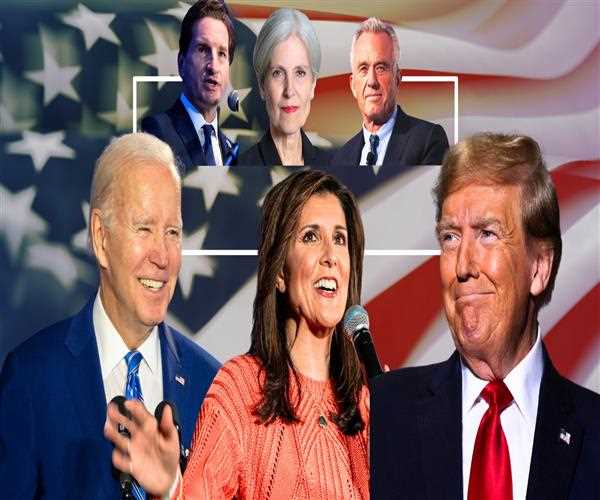
19-Feb-2024 , Updated on 2/21/2024 4:01:46 AM
How Artificial Intelligence Can Alter the US Election?
In the digital era, innovations in technologies have revolutionized the mode of political campaigning between politicians and citizens. It has been proven that Artificial Intelligence (AI) has become one of the most useful tools in forming public discourse and influencing voters’ sentiments. This article discusses the influence of AI on US elections, concentrating on its application of providing real-time updates, reaching out to the specific demographic audience, democratizing disinformation, and calling for regulation safeguards in response to emerging threats. This is especially because Artificial Intelligence has significantly changed the landscape of US elections and how information is spread as well as how candidates are chosen by the people and the challenges that emerged
Instant Responses: AI as a Tool for Real-time Communication
AI prevents political entities from reacting in a delayed way due to the dynamic nature of the campaigns by offering real-time messages. From the RNC and other political actors, the ability to leverage generative AI enables swift development and distribution of each user-targeted content in real-time or in response to unfolding news. From a time perspective, such kind of changes make political campaigns more flexible, allowing them to reach out to the voters and build a favorable environment in the face of the audience immediately.
The 2023 ‘Joe Biden’ video
Last year it was reported that the Republican National Committee (RNC) had made use of an AI-powered video representing Joe Biden in an adversarial role. This showcases the power of AI in defining the contours of the elections on the horizon. This development reflects the rapid technological changes that favor digital technologies which allow to compose political messages instantly and thus can spread the wrong message or ignite criticism among the public with minimum effort. The further evolution of AI is expected to have a deep impact on candidates, parties, and the electorate via how politicians and journalists perceive campaigns and votes.
The fact that AI is used by political organizations, such as the RNC, and that it is now entering an era when technology is at the heart of political communication and shapes the discourse and voter sentiment is a new domain of political communication. Achieving the understanding and resolving ethical/societal consequences of AI technology became a necessity in the era when technology and electoral politics co-exist. This is to secure the democracy.
Precise Message Targeting: Targeting for Pursuit of Voters
The targeted campaign is one of the strengths of AI in elections. Leveraging large volumes of data from commercial sources, campaigns can discover voter demographics and speak to them specifically with personalized messages. Using such microtargeting, campaigns direct the resources towards swing voters and undecided, using the valuable electoral money wisely and thus possibly contributing to victories of candidates in close races.
Democratizing Disinformation: Tries in the Digital Age
Though AI has unique communication capabilities and limits for ruling actors, it also imposes challenges by fighting it. AI-enabled content creation systems classify users in such a way that false narratives can spread more quickly, turning their producers into effective opinion makers without gatekeepers. Along with the spread of disinformation, the platform is not only compromising the integrity of the elections but also creating an environment of low trust in the processes, threatening the democratic health along the line.
Guardrails and Disclosure: Assessing Regulatory Gaps
The digitization of AI in political messaging has resulted in the requirement for stronger regulatory systems to be put in place to ensure fair elections. Nevertheless, the existing legislation has proven partially unsuitable to deal with rapid technological advancements, thus, creating significant gaps in regulatory oversight and accountability. Transparency and accountability fall short when there are no clear guidelines and what is disclosed. In addition, deception is inevitable when people are being fed false information. Therefore urgent reforms are required, to make transparent and accountable electoral communication.
Conclusion: Balancing Artificial Intelligence and Democracy in the Modern Era
Given the speed with which AI reconfigures political communication, it is imperative to cross the space between technology and democracy picking your way prudently. Although the self-service AI can expand the scope for outreach and engagement, it also consists of various things that can cause harm to the fairness and integrity of the election process. Through fixing regulatory gaps, developing transparency, and building public education, AI can be utilized for the enhancement of the democratic government and the protection of the values of free and fair elections in the current digital setting.
In a nutshell, the AI development in US elections calls for preventive measures to be taken to preserve democratic values as well as to make election systems safe from manipulations. Through transparency, accountability, and responsible use of technology we can overcome the challenges of AI in democracy and our electoral systems remain resilient and trustworthy which in turn ensures the security and credibility of our elections.

Content writer
I am a content writter !
Comments
Join Our Newsletter
Subscribe to our newsletter to receive emails about new views posts, releases and updates.
Copyright 2010 - 2026 MindStick Software Pvt. Ltd. All Rights Reserved Privacy Policy | Terms & Conditions | Cookie Policy